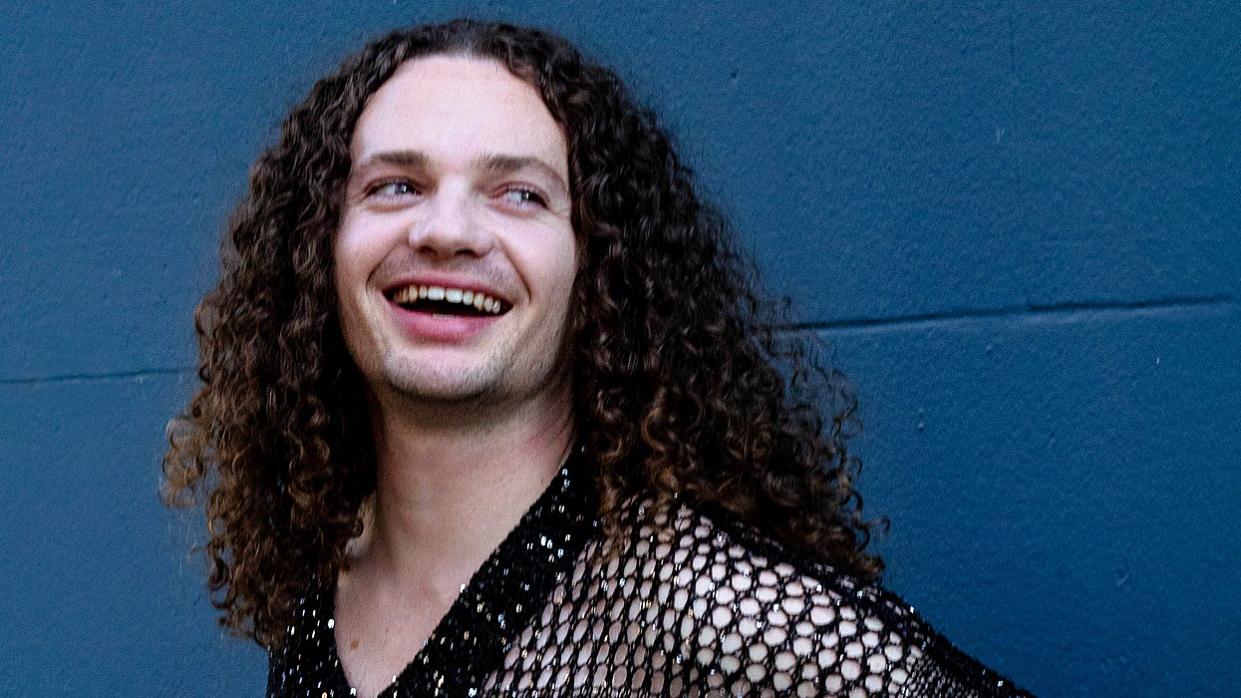A quest to improve my mental health and find my breath

The wide-open spaces of Montana offer a dream of freedom many seek. But growing up queer in a rural town there meant suffocating isolation.
Our little community offered few queer role models and a plethora of hate, both early challenges for my mental health. Fortunately, my adoptive parents temporarily saved me. But even that cocoon of love and support couldn't save me from the seeds of mental health issues that were planted in my biology while I was growing in the womb of my drug-addicted mother.
As an advocate, I have a responsibility to bring awareness to the fact that addiction is under the umbrella of mental health diseases. For those who struggle with inborn challenges, I am here to counter the assumption that we are a lost cause. We can, and do, recover.
When I was growing up in the West, a single voice of intolerance could spur an entire storm of bullying and harassment. I had the conflicting emotions of desperately wanting to express my queer identity openly but also the fear of what might result if I did. The bullying, hate, and intolerance led me to believe I was better off somewhere else. So I ran away.
I thought a change in geography would solve my struggling mental health. But wherever you go, you bring your distorted beliefs, unhealthy coping mechanisms, and whatever you are avoiding with you. The places where I sought shelter reintroduced drugs and alcohol absent in my life since being born into detox. My excuses ranged from "nobody understands what it's like to be queer in a conservative community" to "using will allow me entrance into more tolerant groups."
Or, worse, this is "just what gay people do."
I had certainly seen examples in the media. I idolized shows and images that created an imaginary gay heaven in which promiscuity and the excesses of party life were glorified. I wanted to make that world for myself. But as a teenage runaway, that world can be scary, challenging, dangerous, and life-threatening. These realities did not benefit my mental health and offered me more excuses to use.
Despite my HIV diagnosis and nearly progressing to borderline AIDS before seeking treatment, I avoided making positive changes. As a result, my mental and physical health plummeted. This led to me feeling justified in using substances that took a further toll on my overall health. I succumbed to self-destruction repeatedly. From running away to prostitution to giving myself entirely to my addictions, I allowed hate coming from the outside to become internalized shame. The weight of negativity often drowned out my hopes.
I used these negative realities to seek solace in substances and reckless behavior while avoiding my mental health. But what escaped my realization was the key to my recovery: embracing my authenticity and willingness to seek help.
Unlike the world, mental health and addiction don't discriminate. No disease discriminates. Marginalized groups often have tangible barriers to treatments in a myriad of ways, from communication challenges to physical access to financial concerns. Don't let these obstacles stop you from pursuing your mental health journey. Step up for yourself and be your own advocate.
The words and influence of others on our lives lose power as we step into our authentic selves. Our dignity, self-respect, and self-reliance grow. Our ability to connect with others frees us. If you are struggling with mental health, addiction, or recovery and don't know where to start, think of one person you know who has your best interest at heart. Go to them and simply ask for help. Start to share your story with someone you trust.
My goal is for people to feel less alone, look into themselves, and see how they can rise above and recover. Because they, and you, can—and you are worth it!
Bruce W. Brackett is a social media personality, entrepreneur, self-taught visual artist, international motivational speaker, and author of How to Breathe While Suffocating.
Voices is dedicated to featuring a wide range of inspiring personal stories and impactful opinions from the LGBTQ+ community and its allies. Visit out.com/submit to learn more about submission guidelines. We welcome your thoughts and feedback on any of our stories. Email us at voices@equalpride.com. Views expressed in Voices stories are those of the guest writers, columnists and editors, and do not directly represent the views of Out or our parent company, equalpride.


